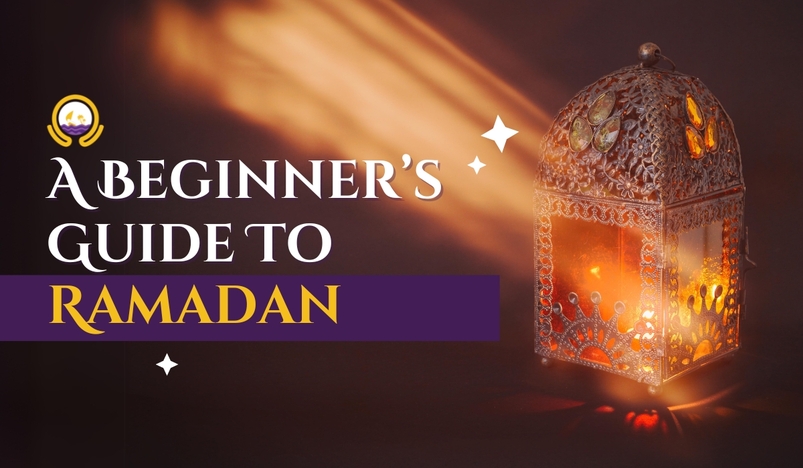
Ramadan in Qatar
Ramadan, a sacred and cherished month for Muslims around the world, is an important part of Qatar's traditions, culture, and lifestyle. Ramadan is more than just fasting; it is a journey that explores spiritual development, introspection, and unity.
One of the five pillars of Islam is Ramadan, a month-long religious observance in which Muslims participate (the other 4 being Shahadah - the profession of faith, Salah - prayer, Zakat - almsgiving, and Hajj - the pilgrimage to Makkah). Muslims around the world fast from sunrise to dusk during this time. Ramadan fasting is more than just giving up food and liquids; it is a complex journey that touches on many facets of life.
Ramadan holds profound significance in the lives of Muslims. It is an opportunity for self-reflection, spiritual connection, and positive change. Beyond the physical act of fasting, people use this month as an opportunity to strengthen their relationship with the divine and engage in acts of kindness and charity.
The timing of Ramadan is based on the Islamic lunar calendar. It falls during the ninth month of the Islamic calendar and begins with the sighting of the crescent moon. Due to the shorter Islamic calendar, Ramadan starts 10 to 12 days earlier each year. In 2024, Ramadan is expected to commence on March 10.
Ramadan is rich in rituals, each carrying its significance:
Suhoor - The Pre-Fast Meal
The day begins with Suhoor, a pre-fast meal just before sunrise. It's a time for intention-setting and an essential part of starting the fast.
Iftar - The Time of Breaking Fast
Iftar marks the evening meal at sunset to break the fast. It usually starts with dates, following the practices of Prophet Muhammad (PBUH), and is a time of communal gathering.
Taraweeh - Night Prayers
Taraweeh is an extended night prayer offered after the regular night prayer. It is deeply meaningful and frequently performed in groups, even though it is not required.
Laylat ul Qadr - Night of Power
The last ten days of Ramadan are considered high in virtue, with Laylat ul Qadr being a night of forgiveness and divine blessings. Muslims engage in extensive prayer and worship during these nights.
Zakat Al Fitr - Charity of Breaking the Fast
Muslims offer an obligatory charity of food, known as Zakat Al Fitr, to support those in need. It is a gesture to give back to the community.
Eid Al Fitr - Festival
Eid Al Fitr marks the end of Ramadan, lasting three days. It is a celebration bestowed upon Muslims by Prophet Muhammad (PBUH). The first day of Eid is a day of joy and togetherness, marked by feasts and shared moments with loved ones.
Fasting during Ramadan is obligatory for all healthy adult Muslims who are physically and mentally able. However, there are exemptions for the elderly, the ill, children, pregnant women, and travelers. Those who are temporarily unable to fast must make up for missed fasts, while those who can't permanently fast must compensate through charity.
Fasting in Ramadan extends beyond refraining from food and drink. Prohibited actions include:
The fast is not invalidated if these actions are done unintentionally.
Ramadan is more than a set of rituals; it's a personal journey for each individual. It's a time to reflect on one's actions, seek forgiveness, and strive for personal improvement. Fasting reinforces the value of gratitude and generosity by fostering empathy for those who are less fortunate. It is a time to stop, acknowledge the blessings in life, and lend a helping hand to those who are in need. A deep relationship with God is fostered by the nightly prayers and the excitement of Laylat ul Qadr, which add a spiritual dimension.
In essence, Ramadan is a holistic journey encompassing physical, mental, and spiritual facets. It's a time of reflection, unity, and spiritual growth. As Muslims embark on this beautiful month, the shared humanity in the act of fasting binds communities together. Ramadan is not just a month of abstaining from food; it's a journey of self-discovery, compassion, and communal harmony.
.jpg)
Qatar Secures Place Among the World's Top 10 Wealthiest Nations
.jpg)
Hamad International Airport Witnesses Record Increase in Passenger Traffic

Saudi Arabia: Any visa holder can now perform Umrah

What are Qatar's Labour Laws on Annual Leave?
Leave a comment